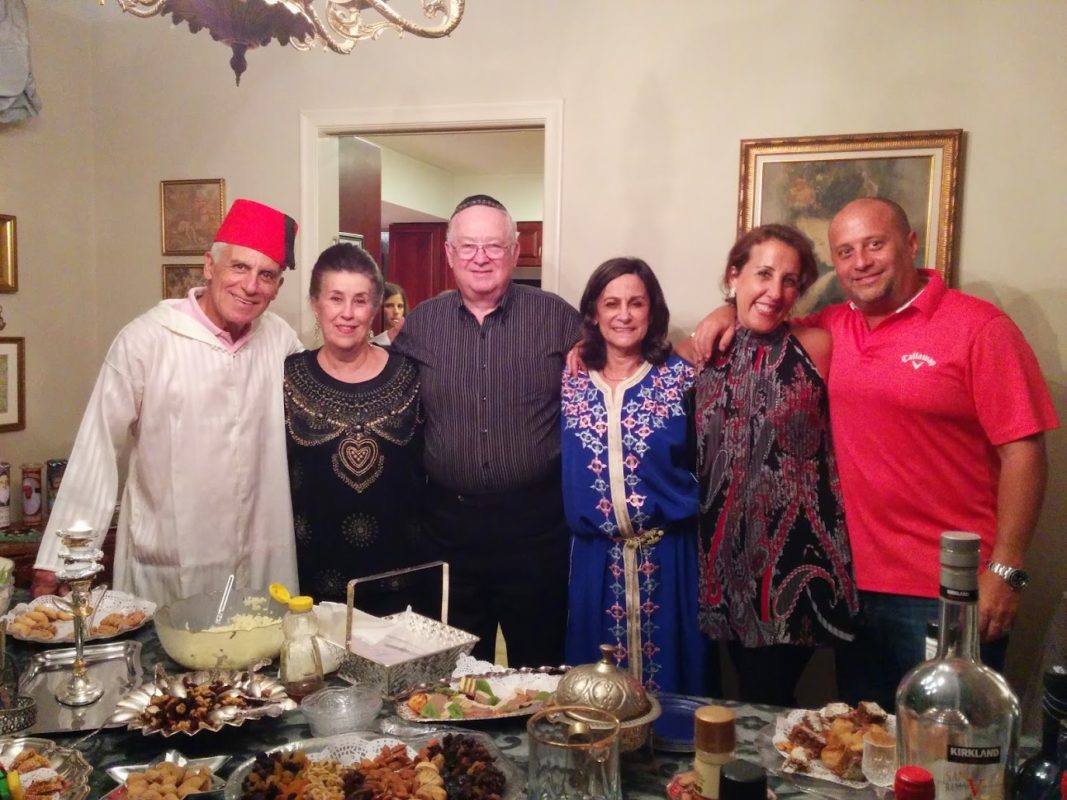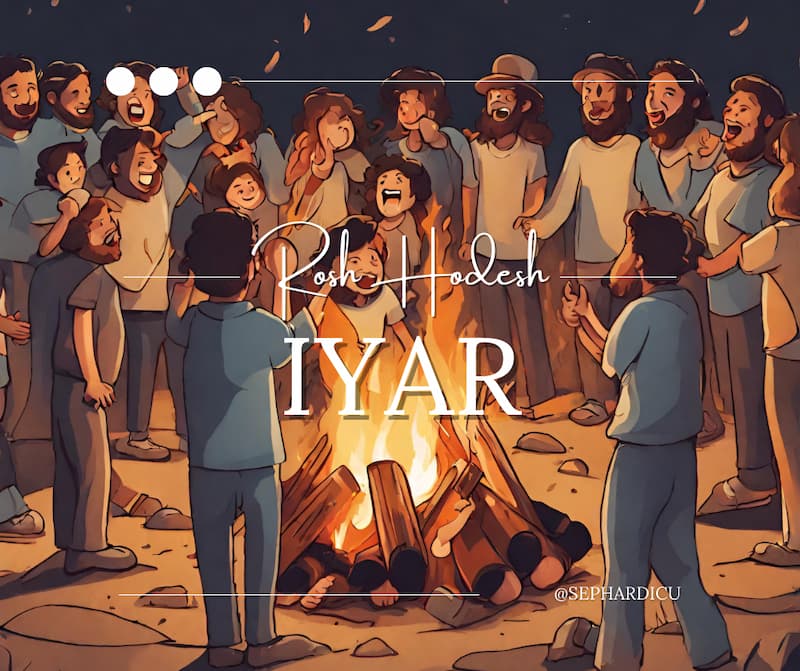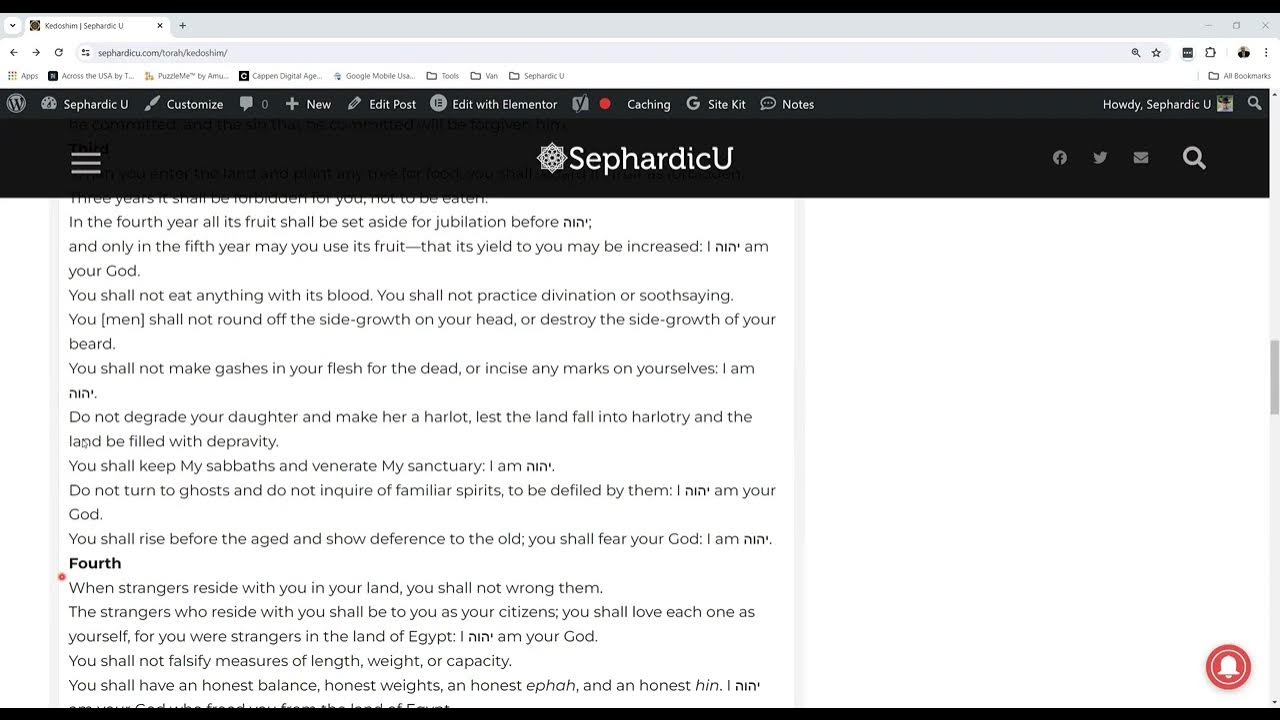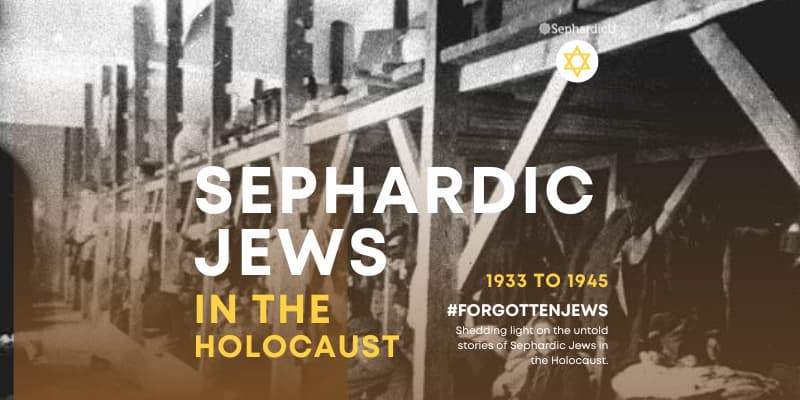Sephardim, of the Moroccan rite, throughout the world will launch the Mimouna festivities immediately after the close of the Passover holiday at sundown. The Mimouna (or Mimuna, or Maimuna) is a celebration of liberty, of community values, friendship, togetherness, and an extraordinary show of hospitality. Jews open their doors and set a festive table for their neighbors, friends and family in a festival of joy, a display of distinctive foods, and dress and an intriguing array of customs and symbols. In an atmosphere of peace, kindness and relaxation, they will enjoy neighborhood parties, collective picnics with tents pitched, courtship, and joyous visits.
Mimouna Traditions
In marked contrast with the Seder night, when congregants hurried home from the synagogue to begin the Haggadah, congregants on Mimouna’s eve take the time to greet each other the evening service with the consecrated formula: terbah (success), the special Mimouna blessing: “Alallah Mimouna, Ambarka mas’uda“, to drink a little Mahia, and stop on their way home to visit the Rabbi’s family, the Hazzan, their own parents, their friends and their neighbors, in that order.
The rallying point in every home is the festive table, set with white tablecloth, adorned with flowers and stalks of wheat, and displaying the symbolic foods: milk or buttermilk, flour, eggs, honey, butter, fruits, nuts, yeast cakes, sweets, five dates, five coins, five beans, wine and plain yeast. And of course, stacks of the famous Mofletta, eaten hot with butter and honey added in the center and rolled like a crepe. Other intricate dishes, all dairy, are of course on the menu, prepared by women wearing their embroidered caftans.
More Mimouna
It is the custom to invite couples who are engaged to dine at the fiancée’s parents, where they would be served Mofletta and grilled fish. It is a time for courting and looking for a future bride or groom.
Everyone would then go out in the streets and singles would mingle under their parents’ watchful eye. Old people would gather at someone’s front step, remembering the old days, telling jokes and laughing well into the night.
Early on Mimouna day, the following morning, families in coastal cities get up and head for the seashore. They splash their faces with water, and step barefoot in the ocean, to replay, in a sense, the miraculous crossing of the Red Sea which took place historically in the last day of Passover and ended in freedom and spiritual and worldly productivity.
Those who live inland go to the local wells, springs, rivers or swimming holes. Afterwards, they participate in picnics in a natural setting, with pitched tents, music, dances, and laughter.
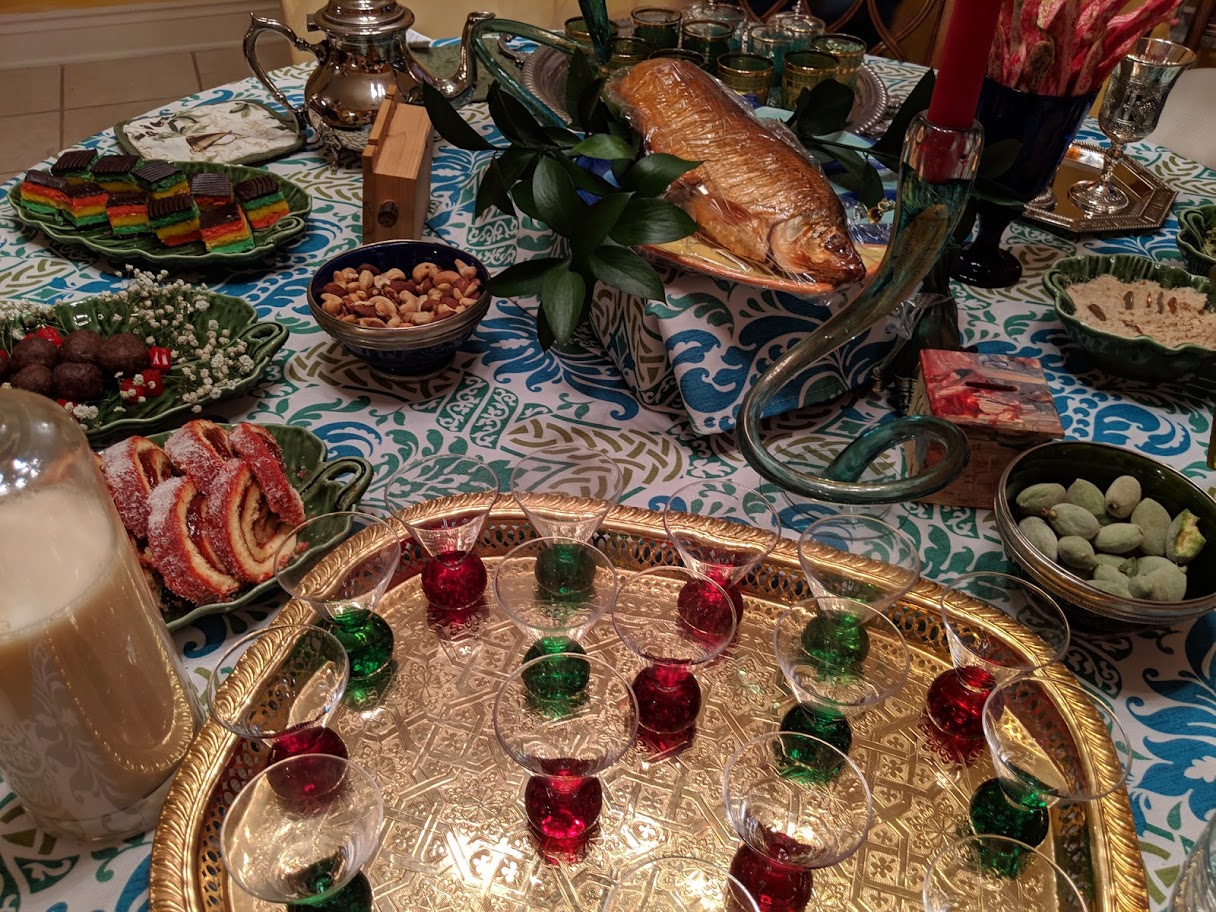
APRIL 2, 2021 BY KOSHER COWBOY 2 COMMENTS
mimouna – a festival of brotherly love
Sephardim, of the Moroccan rite, throughout the world will launch the Mimouna festivities immediately after the close of the Passover holiday at sundown. The Mimouna (or Mimuna, or Maimuna) is a celebration of liberty, of community values, friendship, togetherness, and an extraordinary show of hospitality. Jews open their doors and set a festive table for their neighbors, friends and family in a festival of joy, a display of distinctive foods, and dress and an intriguing array of customs and symbols. In an atmosphere of peace, kindness and relaxation, they will enjoy neighborhood parties, collective picnics with tents pitched, courtship, and joyous visits.

mimouna traditions
In marked contrast with the Seder night, when congregants hurried home from the synagogue to begin the Haggadah, congregants on Mimouna’s eve take the time to greet each other the evening service with the consecrated formula: terbah (success), the special Mimouna blessing: “Alallah Mimouna, Ambarka mas’uda“, to drink a little Mahia, and stop on their way home to visit the Rabbi’s family, the Hazzan, their own parents, their friends and their neighbors, in that order.
The rallying point in every home is the festive table, set with white tablecloth, adorned with flowers and stalks of wheat, and displaying the symbolic foods: milk or buttermilk, flour, eggs, honey, butter, fruits, nuts, yeast cakes, sweets, five dates, five coins, five beans, wine and plain yeast. And of course, stacks of the famous Mofletta, eaten hot with butter and honey added in the center and rolled like a crepe. Other intricate dishes, all dairy, are of course on the menu, prepared by women wearing their embroidered caftans.




more customs
It is the custom to invite couples who are engaged to dine at the fiancée’s parents, where they would be served Mofletta and grilled fish. It is a time for courting and looking for a future bride or groom.
Everyone would then go out in the streets and singles would mingle under their parents’ watchful eye. Old people would gather at someone’s front step, remembering the old days, telling jokes and laughing well into the night.




Early on Mimouna day, the following morning, families in coastal cities get up and head for the seashore. They splash their faces with water, and step barefoot in the ocean, to replay, in a sense, the miraculous crossing of the Red Sea which took place historically in the last day of Passover and ended in freedom and spiritual and worldly productivity.
Those who live inland go to the local wells, springs, rivers or swimming holes. Afterwards, they participate in picnics in a natural setting, with pitched tents, music, dances, and laughter.
Mimouna Origins
While it is difficult to determine when the practice begun, the name Mimouna has fueled speculations as to the holiday’s origins and meaning.
Here are three theories:
- Mimouna comes from the name Maimon. Maimonides’ father, who had lived in Fez, where the Mimouna said to have originated, died on that day.
- It comes from the Hebrew / Aramaic word mammon, which means “riches” or prosperity. The underlying presumption is that an individual’s productivity, the nation’s bounty, and personal and national wealth are determined on Mimouna Day.
- It contains the Hebrew word emunah, or faith (that the redemption will occur in the month of Nisan, as freedom from bondage has occurred in the same month).
“Terbah“
Author unknown

